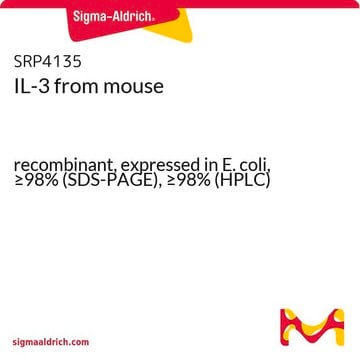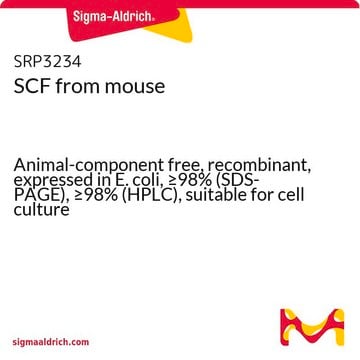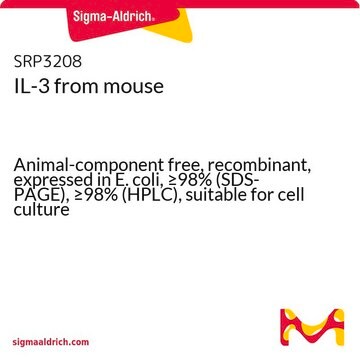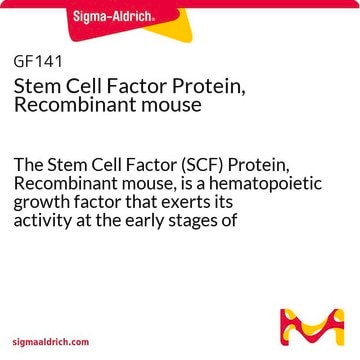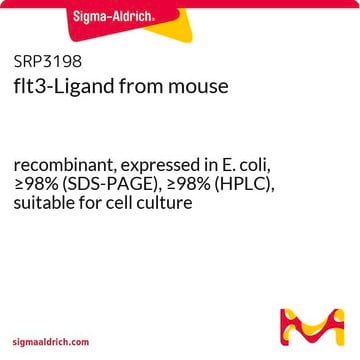S9915
Stem Cell Factor from mouse
≥95% (SDS-PAGE and HPLC), recombinant, expressed in E. coli, powder, suitable for cell culture
Sinónimos:
SCF, c-Kit ligand
Seleccione un Tamaño
424,00 €
Seleccione un Tamaño
About This Item
424,00 €
Productos recomendados
Nombre del producto
Stem Cell Factor from mouse, SCF, recombinant, expressed in E. coli, powder, suitable for cell culture
origen biológico
mouse
Nivel de calidad
recombinante
expressed in E. coli
Ensayo
≥95% (SDS-PAGE and HPLC)
Formulario
powder
potencia
≤10 ng/mL ED50/EC50
calidad
endotoxin tested
mol peso
18.3 kDa
envase
pkg of 10 μg
pkg of 50 μg
condiciones de almacenamiento
avoid repeated freeze/thaw cycles
técnicas
cell culture | mammalian: suitable
impurezas
<1 EU/μg
color
white
solubilidad
water: soluble
Nº de acceso UniProt
temp. de almacenamiento
−20°C
Información sobre el gen
mouse ... Kitl(17311) , kitl(17311)
Descripción general
Recombinant mouse stem cell factor (SCF) is a 18.3 kDa protein containing 164 amino acid residues.
Aplicación
Acciones bioquímicas o fisiológicas
Forma física
Nota de análisis
Código de clase de almacenamiento
11 - Combustible Solids
Clase de riesgo para el agua (WGK)
WGK 1
Punto de inflamabilidad (°F)
Not applicable
Punto de inflamabilidad (°C)
Not applicable
Equipo de protección personal
Eyeshields, Gloves, type N95 (US)
Elija entre una de las versiones más recientes:
Certificados de análisis (COA)
¿No ve la versión correcta?
Si necesita una versión concreta, puede buscar un certificado específico por el número de lote.
¿Ya tiene este producto?
Encuentre la documentación para los productos que ha comprado recientemente en la Biblioteca de documentos.
Filtros activos
Nuestro equipo de científicos tiene experiencia en todas las áreas de investigación: Ciencias de la vida, Ciencia de los materiales, Síntesis química, Cromatografía, Analítica y muchas otras.
Póngase en contacto con el Servicio técnico